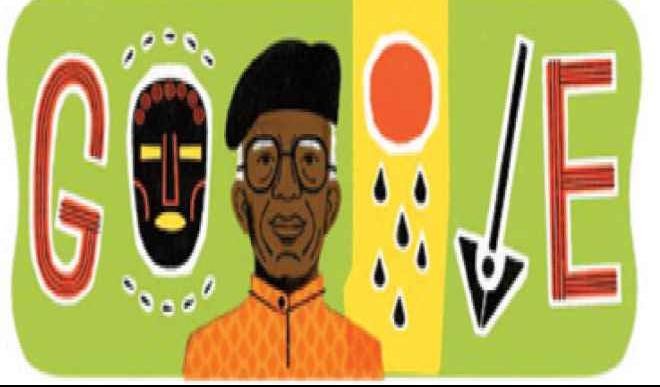Why Google Doodle Celebrated Achebe
One of Africa’s most preeminent writers, Chinua Achebe would have been 87 on Thursday November 17 and to commemorate the date Google decided to celebrate the icon with its doodle. Achebe was a product of Nigeria’s storytelling tradition. Born in Ogidi in 1930 to an Igbo family, he was the studious son of an evangelical […]


One of Africa’s most preeminent writers, Chinua Achebe would have been 87 on Thursday November 17 and to commemorate the date Google decided to celebrate the icon with its doodle.
Achebe was a product of Nigeria’s storytelling tradition. Born in Ogidi in 1930 to an Igbo family, he was the studious son of an evangelical priest. He grew up listening to stories narrated in his community.
In love with the library, Chinua completed English studies at the University of Ibadan in four years instead of the standard five.
In 1961, he worked for the Nigerian Broadcasting Corporation and married Christie Okoli. They had four children together.
He was disappointed by the European interpretation of African culture. To give African children better quality books, he co-founded in 1967 Citadel Press with renowned writer Christopher Okigbo to publish children’s books.
A voracious reader, he was disturbed by non-African authors’ ignorance about the continent and its people.
He supported Biafran independence. When the region of Biafra broke away in 1967, Achebe became a strong Biafran supporter. He later dabbled in political activism.
Frustrated by corruption in Nigeria, Chinua emigrated to the United States in 1969 as a university lecturer. He returned to Nigeria in 1976 and worked as professor of English.
He was left paralysed by a car accident. In 1990 Achebe was in a crash in Nigeria that left him paralysed and in a wheelchair. In the same year he moved to the US and taught at Bard College for 15 years.
In 2009, Achebe joined Brown University as a professor of African Studies.
Chinua died in Boston on March 21, 2013, at the age of 82.
Things Fall Apart
Achebe described the clash of civilizations in Africa. As a Nigerian novelist, Achebe portrayed the social disorientation that resulted from Western colonisation of Africa.
In 1958, he published his first and most widely read novel, Things Fall Apart. The novel portrays the clash of cultures that took place when Christian missionaries and Western colonials encountered traditional African societies in the 19th century.
The novel follows the life of Okonkwo, an Ibo leader and local wrestling champion. He is is exiled and upon his return, finds his community has submitted to the influence of Western colonisers. Realising how much his life and his village have worsened, he hangs himself.
“The world has no end, and what is good among one people is an abomination with others,” writes Achebe. “A child cannot pay for its mother’s milk.”
Things Fall Apart has been hailed as one of the best English-language novels. In 2005, Time magazine listed the book in its list of 100 Best English-language Novels from 1923 to 2005.
It is still one of the most read books in modern African literature. The novel sold over 12 million copies and was translated into more than 50 languages.
The book was followed by a sequel, No Longer at Ease, originally written as the second part of a larger work along with Arrow of God.
Recognition
Acknowledged as the father of modern African literature, Chinua was awarded 30 honorary degrees from universities around the world.
Achebe also won many literary awards,from the inaugural Nigerian National Merit Award in 1979 to the Man Booker International Prize for Fiction in 2007.
He won The Dorothy and Lillian Gish Prize in 2010. The annual prize is given to “a man or woman who has made an outstanding contribution to the beauty of the world and to mankind’s enjoyment and understanding of life”.
South Africa’s anti-apartheid revolutionary leader Nelson Mandela called him a writer “in whose company the prison walls fell down”.
Current president of South Africa Jacob Zuma has described him as a “colossus of African writing”.
Literary critics have compared Achebe’s eminence worldwide to Gabriel Garcia Marquez, Toni Morrison and a handful of other writers.
Source: Aljazeera News
